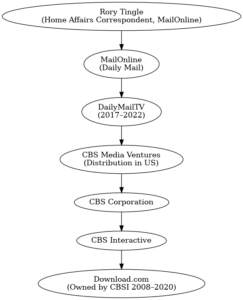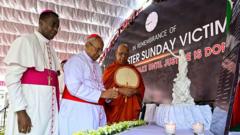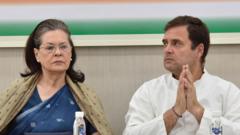The Indian political landscape is marred by allegations of vote manipulation in the 2024 elections, as opposition leaders, primarily Rahul Gandhi, challenge the legitimacy of the electoral process, prompting responses from the Election Commission and the ruling BJP.
Allegations of Vote Manipulation Rock India's 2024 Elections

Allegations of Vote Manipulation Rock India's 2024 Elections
Opposition voices, led by Rahul Gandhi, raise serious concerns over electoral integrity as tensions escalate between political factions in India.
The political atmosphere in India is currently charged with controversy following serious allegations of vote manipulation during the 2024 elections, primarily spearheaded by opposition parties who assert that the election body favored the ruling Bharatiya Janata Party (BJP). On Tuesday, the parliament was abruptly adjourned as opposition MPs pressed for discussions regarding the integrity of India's electoral system. The day before, numerous opposition figures, including Congress leader Rahul Gandhi, faced police detention while attempting to march towards the Election Commission of India's (ECI) headquarters to voice their concerns.
Gandhi first articulated his accusations during a press conference in early August, claiming vast inconsistencies in voter data from the official sources. The allegations have since garnered significant backing from numerous lawmakers dissatisfied with the electoral process. Despite these claims, both the Election Commission and the BJP have rigorously denied any wrongdoing.
The crux of Gandhi's allegations revolves around assertions of widespread voter manipulation, particularly in detailed accounts from Mahadevapura, a district in Bangalore Central. He pointed to over 100,000 suspected irregular entries on the voter rolls, consisting of duplicate registrations, invalid residential listings, and suspicious bulk registrations. His claims included specific incidents like a voter allegedly casting ballots twice, which the Election Commission has countered.
Amidst his assertions, Gandhi criticized the election body for alleged failures to uphold the democratic principle of "one man, one vote". He contended that such anomalies resulted in the Congress party losing 48 seats, contributing to their final tally of 99, compared to BJP's 240 in the parliament elections.
The Election Commission responded robustly to Gandhi's accusations, labeling them as "absurd" and demanding that he either substantiate his claims with an official declaration or retract his statements entirely. The Karnataka branch of the ECI challenged Congress's complaints, noting that no formal objections were raised when the electoral rolls were being modified prior to the elections. Furthermore, the commission emphasized its policy regarding the retention of CCTV footage, which is only kept for 45 days post-election.
The political fallout surrounding these allegations intensified with existing tensions over a large-scale revision of electoral rolls in the state of Bihar, observed by critics as disenfranchising voters, particularly among minority groups and migrants. The Special Intensive Revision (SIR), aimed at vetting approximately 78.9 million registered voters, has faced scrutiny for its execution.
India's Supreme Court is presently reviewing several petitions opposing the SIR and considering calls for transparency regarding the deletion of over 6.5 million names from the voter registration. The ECI asserted that deletions were necessary due to inaccuracies including deceased individuals and duplicate enrolments. The court has indicated the necessity of evidence regarding potential voter exclusion, acknowledging concerns among the public.
As the political discourse evolves, Gandhi has urged a national audit of the electoral process, claiming the manipulation to be systematic across India. His warnings and specific anecdotes of unusual registrations have raised alarms, but the resolution of these contentions remains to be seen as the elections unfold.


















